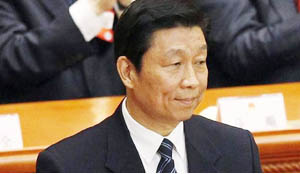THE four-day State visit to Zambia by the Vice-President of the People’s Republic of China, Li Yuonchao, epitomises the two countries’ cravings for more and more cordial relations covering a wide range of areas.
Foremost it should be noted that Dr Li is actually not the first high-ranking Chinese government official to visit Zambia.
Prior to Dr Li’s visit which begins today, former Chinese President Hu Jintao came to this Southern African nation in February 2007 as part his eight-nation tour of African countries.
Like his former president, Dr Li is being accompanied by a high-powered delegation comprising Government and Communist Party officials, as well as business executives.
From what we have picked from media reports, the Chinese vice-president is coming at the invitation of his Zambian counterpart, Dr Guy Scott.
However, looking at Zambian officials he is expected to meet such as President Michael Sata, first Republican president Kenneth Kaunda and Patriotic Front leaders.
It is envisaged that talks will cover such areas as the deepening bilateral ties, as well as economic and trade relations between China and Zambia.
Of course as could be expected, there has previously been debate on relations the People’s Republic of China has built over the years with African countries, including Zambia.
Those critical of these relations, especially the Western media, have been wary of China’s increasing role in the socio-economic affairs of African countries, specifically charging that this has largely been
motivated by China’s ‘hunger’ for raw materials to feed its booming economy.
The Western critics have even expressed concern over China’s neutrality about the perceived human rights concerns in some African nations, and criticise Beijing for not pushing for regime changes in
some these countries.
In addition, they argue that by pursuing and practicing the non-interference policy, China indirectly contributes to the destruction of the democratic dispensation in Africa, which might eventually lead to massive corruption and human rights violations, among other woes.
But we are not shy to openly voice out our contrary views and side with the proponents of China-Africa ties, who are optimistic about the two sides’ relationship.
Like so many African people, we consider China to be a reliable partner for African countries such as Zambia, and it is basically for this reason that we have had high-level visits by Chinese leaders to
Africa.
Accepting invitations such as the one Dr Scott extended to his Chinese counterpart is but an assurance that the People’s Republic of China truly values its relationship with African countries.
Specifically, no one can deny the fact China continues to contribute to the development of African countries in the form of grants and aid projects, including foreign direct investments which come in with no strings attached.
In short, China’s role in the infrastructural and industrial development in countries like Zambia, as well as the swift cancellation of African debts is undeniably commendable.
Of course Zambia, like so many African countries, is home to enormous raw materials which to date are yet to be tapped and certainly China, whose emergence onto the global economic arena has been acknowledged world-wide, must surely have a role to play in this.
But we are suspicious of some claims by China’s critics because we are convinced that as China partners with Africa in tapping these natural resources, this partnership is based on sincere friendship.
It is furthermore based on equality and mutual respect for the sovereignty of host nations through China’s non-interference in their domestic affairs, and the offer of soft loans and grants to African
countries.
So to Dr Li and his delegation, we say you are most welcome, and feel at home because your visit to Zambia is for the mutual benefit of the two countries whose friendly relationship spans decades.







